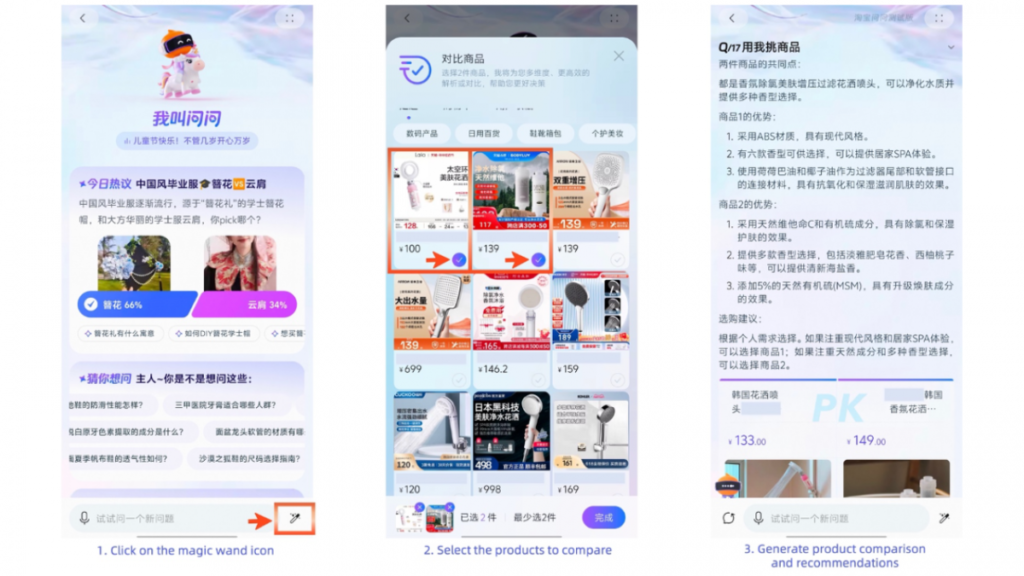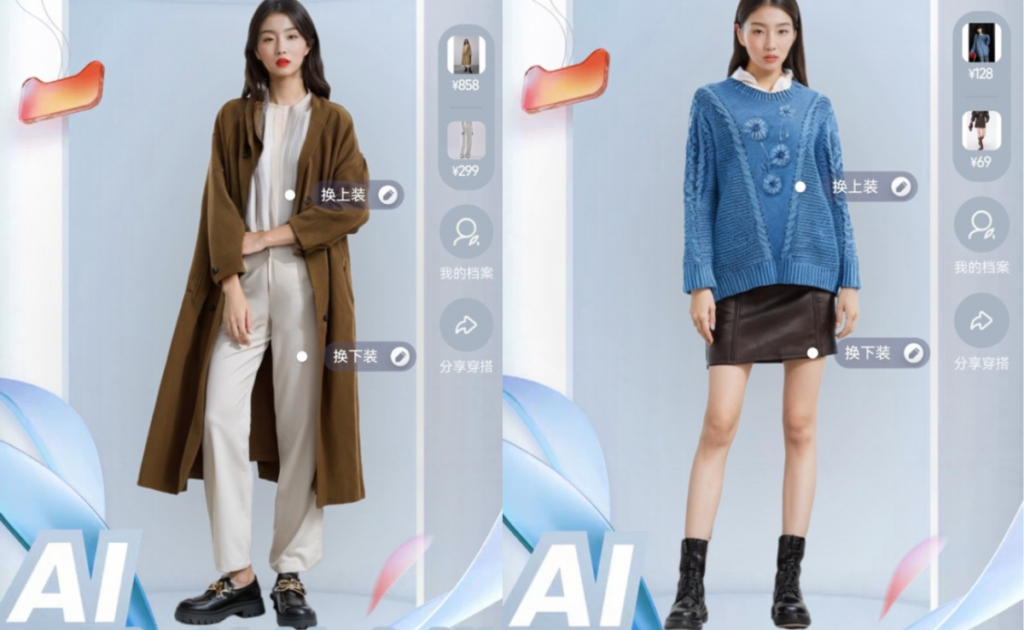Alibaba Group’s China commerce division is spearheading a transformation in the digital shopping experience. By leveraging a wide array of AI features, Taobao and Tmall are not only enhancing consumer interactions but also boosting operational efficiency for merchants. This article delves into the comprehensive strategies and AI-driven innovations shaping the future of eCommerce China on these platforms.
In the ever-evolving world of eCommerce China, staying ahead of the curve requires constant innovation and adaptation. Alibaba Group’s core e-commerce division, Taobao and Tmall Group (TTG), exemplifies this with its robust integration of AI technologies. As the backbone of digital retail innovation in China, TTG is pioneering advancements that benefit both consumers and merchants. This article explores the transformative impact of these AI tools and strategies, highlighting how they are revolutionizing the shopping experience and providing critical support to merchants.
Transforming the Consumer Experience
AI-Driven Personalization
For years, Taobao and Tmall have utilized consumer insights and algorithms to offer personalized user interfaces and recommendations. Today, their AI capabilities have taken these efforts to new heights in eCommerce China.
Taobao Wenwen: An AI-Powered Shopping Assistant
Launched in September 2023, Taobao Wenwen integrates AI into the Taobao app, offering a unique question-and-answer interaction platform. Wenwen provides detailed product recommendations, guided purchasing decisions, and multi-media content, including videos and livestreams. During major shopping festivals like 11.11 and 6.18, Wenwen’s ability to identify the best deals and provide instant pricing analysis has been a game-changer for millions of users.

Enhancing Merchant Efficiency
In October 2023, Taobao and Tmall introduced a suite of 10 AI tools to a select group of merchants, and by early 2024, these tools became available to all merchants. This rollout signifies a significant milestone in improving operational efficiency and optimizing various aspects of e-commerce business management.
Visual Generative Tools
The visual generative tools offered by Taobao and Tmall are game-changing for merchants. These tools allow merchants to upload product images and manipulate them using AI, such as changing models pictured and inserting them into various background styles. For example, a furniture retailer can place a couch in different room settings to showcase versatility and appeal. This reduces the need for costly photo shoots and extensive visual production work. Over 20,000 brands in the home category have utilized this technology, generating over 900,000 enhanced product images. The AI-enhanced images have improved the click-through rate by 25%, demonstrating the effectiveness of these tools in capturing consumer attention and driving engagement.
AI-Generated Marketing Content
Creating compelling marketing content can be time-consuming and challenging for merchants, particularly small businesses with limited resources. Taobao and Tmall’s AI tools simplify this process by generating product descriptions, titles, and other marketing materials based on trending keywords and consumer insights. These tools ensure that the content is not only relevant but also tailored to the merchant’s specific audience. Additionally, the AI can publish posts on in-app social media channels, maintaining a consistent and engaging presence. This automation supports merchants’ marketing efforts, enhances product visibility, and boosts conversion rates, all while freeing up valuable time for other business activities.
Market Insights with Business Advisor
The Business Advisor tool is an AI-powered market insights monitoring system designed to support merchants’ operational analytics needs. By leveraging consumer demand insights, industry trends, and competitor analysis, Business Advisor helps merchants capture new opportunities to grow their businesses. The tool provides a simple user interface that offers robust AI-driven analytics, enabling merchants to make real-time adjustments to optimize product assortments, pricing strategies, and marketing campaigns. This dynamic and data-driven approach allows merchants to stay competitive in a fast-paced market, ensuring they can respond quickly to changing consumer preferences and market conditions in eCommerce China.
Smart Customer Service with Ali Xiaomi
Ali Xiaomi, also known as Ali Assistant, is a Qwen-powered chatbot that enhances customer service for merchants on Taobao and Tmall. This smart assistant offers around-the-clock support, providing accurate, personalized responses to a wide variety of inquiries, including product recommendations, order tracking, sales and discounts, and exchanges and returns. Ali Xiaomi addresses common challenges faced by small and medium-sized merchants, such as insufficient customer service staff, limited service hours, and inconsistent service quality. By minimizing wait times and improving service efficiency, Ali Xiaomi ensures a superior customer experience, helping merchants retain customers and build loyalty.
Enhanced Inventory Management
AI tools also play a crucial role in inventory management for merchants. Predictive analytics and demand forecasting capabilities allow merchants to optimize stock levels, reducing the risk of overstocking or stockouts. By ana

lyzing past sales data and current market trends, AI can predict future demand with high accuracy. This ensures that merchants maintain the right amount of inventory, improving cash flow and reducing storage costs. Additionally, automated inventory tracking helps merchants monitor stock levels in real-time, enabling them to make timely restocking decisions and avoid potential sales losses.
Automated Pricing Strategies
Pricing is a critical aspect of e-commerce, and AI tools can significantly enhance pricing strategies for merchants. AI-driven dynamic pricing models analyze a wide range of factors, including competitor prices, market demand, and consumer behavior, to recommend optimal pricing for products. This ensures that merchants remain competitive while maximizing their profit margins. During shopping festivals and promotional campaigns, AI tools can automatically adjust prices to attract more customers and boost sales. By taking the guesswork out of pricing, these tools help merchants achieve better financial outcomes.
Optimized Advertising Campaigns
Advertising is essential for driving traffic and sales, but managing campaigns can be complex and resource-intensive. Taobao and Tmall’s AI tools simplify this process by optimizing advertising campaigns based on real-time data and insights. AI algorithms can identify the most effective ad placements, target the right audience segments, and allocate budgets efficiently. This ensures that merchants get the best return on their advertising spend, increasing visibility and driving higher conversion rates. Additionally, AI tools provide detailed performance reports, allowing merchants to fine-tune their campaigns and achieve better results over time in social marketing China.
Streamlined Supply Chain Management
Efficient supply chain management is crucial for meeting consumer demand and maintaining profitability. AI tools help merchants streamline their supply chains by providing end-to-end visibility and automation. From procurement and production planning to logistics and distribution, AI can optimize every aspect of the supply chain. For instance, AI-powered demand forecasting can help suppliers adjust their production schedules to match market demand, reducing lead times and improving delivery accuracy. By automating supply chain processes, merchants can reduce costs, improve efficiency, and enhance overall business performance.
Enhanced Fraud Detection and Prevention
Fraud is a significant concern for e-commerce merchants, but AI tools can help mitigate this risk. Advanced machine learning algorithms can detect fraudulent activities by analyzing transaction patterns and identifying anomalies. These tools can flag suspicious transactions in real-time, allowing merchants to take immediate action to prevent potential losses. By enhancing fraud detection and prevention, AI tools help merchants protect their businesses and maintain consumer trust.
Personalized Consumer Engagement
AI tools also enable merchants to engage with consumers in a more personalized manner. By analyzing consumer behavior and preferences, AI can help merchants create tailored marketing campaigns and product recommendations. Personalized engagement not only enhances the shopping experience but also builds stronger relationships between merchants and consumers. This leads to increased customer satisfaction, loyalty, and repeat business in social commerce China.
Future Prospects: AI in E-Commerce
As AI technology continues to evolve, so will its applications in e-commerce. Taobao and Tmall are committed to staying at the forefront of these advancements, continuously improving their platforms to meet the needs of consumers and merchants.
Future prospects include expanding AI capabilities to further enhance personalization, efficiency, and innovation. This commitment ensures that Taobao and Tmall remain leaders in the digital retail space.
Taobao and Tmall’s integration of AI is revolutionizing the e-commerce landscape. By enhancing consumer shopping experiences and providing robust support to merchants, these platforms are setting new standards for digital retail. As AI technology continues to advance, the future of e-commerce on Taobao and Tmall looks brighter than ever, promising continued innovation and growth for all stakeholders involved.



